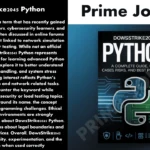In today’s digital-first landscape, businesses of all sizes leverage cloud computing to optimize their operations, scale their infrastructure, and deliver seamless customer experiences. However, managing cloud resources efficiently can quickly become challenging, especially as organizations juggle multiple applications, services, and platforms. This is where cloud management platforms (CMPs) come into play, offering a centralized solution to monitor, manage, and optimize cloud environments. Solutions like DoiT Cloud Intelligence enable businesses to utilize the cloud with efficiency while maintaining control over costs, security, and operational efficiency.
Understanding the Core Functions of Cloud Management Platforms
In its simplest form, a cloud management platform is designed as a single control point for managing an organization’s cloud environment. These platforms enable real-time performance tracking, resource distribution, and recognition of performance gaps. For companies using hybrid or multi-cloud environments, it is imperative that they have CMPs for workloads across multiple providers.
For instance, a business may use AWS to house the main applications while enhancing its data analytical ability through Microsoft Azure. If there is a robust management platform, then the cost and status of IT resources can be more accessible to keep track of; interfacing and compliance with company security policies may be quite a challenge. CMPs help to overcome this issue because they work with different cloud suppliers and provide a single interface to the cloud resources. This comprehensive view of the organization makes decision-making easier, enhances compliance, and guarantees that resources are well used.
Furthermore, cloud management platforms enable tasks like server scaling, updates, and backups to be done automatically. This not only minimizes the possibility of errors but also allows IT staff to work on more important projects. The automation potential of CMPs puts the solution at the center of attention for organizations seeking to improve efficiency and organizational flexibility.
Improving Cost Effectiveness and Accountability
The most critical factor that business organizations experience in cloud computing is cost. Cloud providers’ self-service consumption-based model comes with hidden fees, likely to bite organizations when they least expect them due to their lack of understanding of resource utilization. To this, CMXs provide solutions through cost analytical and cost forecasting capabilities.
Through these platforms, expenses are incurred in real time, resources that were underutilized are easily detected, and future expenses are also easily forecasted depending on usage. For instance, CMPs can identify unused VMs or unnecessary storage buckets and suggest how to reduce costs. Such openness allows the organization to make proper and prudent financial decisions that will create value for every dollar expended on cloud services.
Besides cost control, CMPs help control the budget by defining spending amounts and sending notifications when specific amounts are reached. This makes it easier to avoid cases where the usage of cloud resources has exceeded the anticipated budget and guarantees that cloud resources correlate with the business’s objectives. The main argument is that CMPs increase the financial effectiveness of organizations’ brand awareness of costs.
Enhancing Security and Compliance
With organizations investing in the digital space, it is crucial to ensure that businesses have an adequate level of security and compliance. Cloud management platforms are very useful in protecting data and complying with regulatory standards.
Through CMPs, businesses get a single console to manage the security policies of cloud environments so they can identify risks and respond to them quickly. They also hook up with other security suites to provide additional protection against threats like data loss, unauthorized access, and viruses. To the legal departments of organizations in industries like health care and finance, CMPs benefit from compliance as they apply data protection standards automatically.
Furthermore, many CMPs provide capabilities, including encryption management, identity and access control, real-time auditing, and so on. These capabilities allow businesses to meet high-security needs while meeting efficiency goals. As modern cyber threats become more complex, the security advantages of CMPs are inextricable if one wants to maintain the trust and protection of their cloud environment.
Conclusion
Cloud management platforms have become crucial solutions for enterprises confronting digital business challenges. By centralizing control, increasing cost-effectiveness, and increasing system security, these platforms enable organizations to achieve the ultimate goal of cloud computing. Integrating solid CMPs such as DoiT will become paramount to adaptability, flexibility, and security in the ever-changing digital environment. For organizations looking to centralize their management and optimize their operations, going for a cloud management platform is good business sense and imperative for survival.










